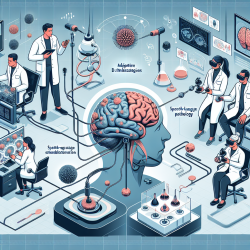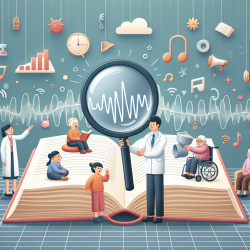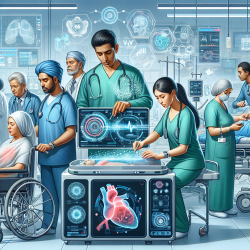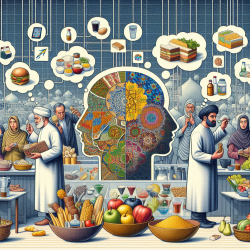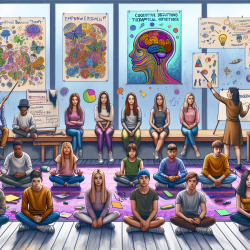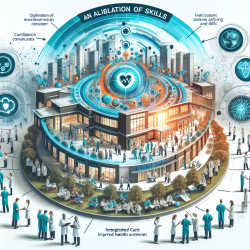Unveiling the Future of Deep Brain Stimulation: Key Insights for Practitioners
The Proceedings of the Seventh Annual Deep Brain Stimulation (DBS) Think Tank have unveiled groundbreaking advancements in neurophysiology, adaptive DBS, virtual reality, and neuroethics. These developments are set to revolutionize therapeutic approaches for neuropsychiatric disorders, offering new avenues for practitioners to enhance patient outcomes.
Adaptive Deep Brain Stimulation: A Game-Changer
Adaptive DBS (aDBS) is emerging as a pivotal technique in treating movement disorders like Parkinson's Disease. By leveraging unique neurophysiological signals, aDBS tailors stimulation delivery to control motor symptoms effectively. Initial studies have demonstrated its superiority over conventional DBS, showing reduced side effects and improved responsiveness to medication.
Practitioners should consider integrating aDBS into their treatment protocols, as it holds promise for broader applications beyond Parkinson's, including tremor and dystonia. The ongoing research aims to refine these techniques further, potentially transforming out-of-clinic treatment environments with fully implanted devices.
Virtual Reality: Bridging the Gap Between Research and Clinical Application
Virtual Reality (VR) and Augmented Reality (AR) are being harnessed to enhance patient engagement and clinical outcomes. The integration of VR in DBS procedures allows for improved visualization of neuroanatomy and patient-specific surgical planning. This technology not only facilitates better understanding among practitioners but also enhances patient comfort and satisfaction.
Practitioners are encouraged to explore VR applications in their clinical settings to provide patients with a more immersive and informative experience, potentially increasing treatment adherence and satisfaction.
Neuroethical Considerations: Navigating the Ethical Landscape
As DBS technologies advance, so do the ethical implications surrounding their use. The Think Tank highlights the importance of addressing neuroethical issues, such as autonomy and personality changes, particularly in diverse cultural contexts. Practitioners must remain vigilant in considering these factors to ensure ethical and patient-centered care.
Ongoing discussions and research in neuroethics are crucial for developing guidelines that uphold patient values and goals, ensuring that DBS technologies are applied responsibly and effectively.
Conclusion: A Call to Action for Practitioners
The advancements presented at the DBS Think Tank offer a wealth of opportunities for practitioners to enhance their therapeutic strategies. By embracing adaptive DBS, VR applications, and engaging in neuroethical discourse, practitioners can significantly improve patient outcomes and contribute to the rapid advancement of the field.
For those interested in delving deeper into these transformative findings, the original research paper can be accessed here: Proceedings of the Seventh Annual Deep Brain Stimulation Think Tank: Advances in Neurophysiology, Adaptive DBS, Virtual Reality, Neuroethics and Technology.
